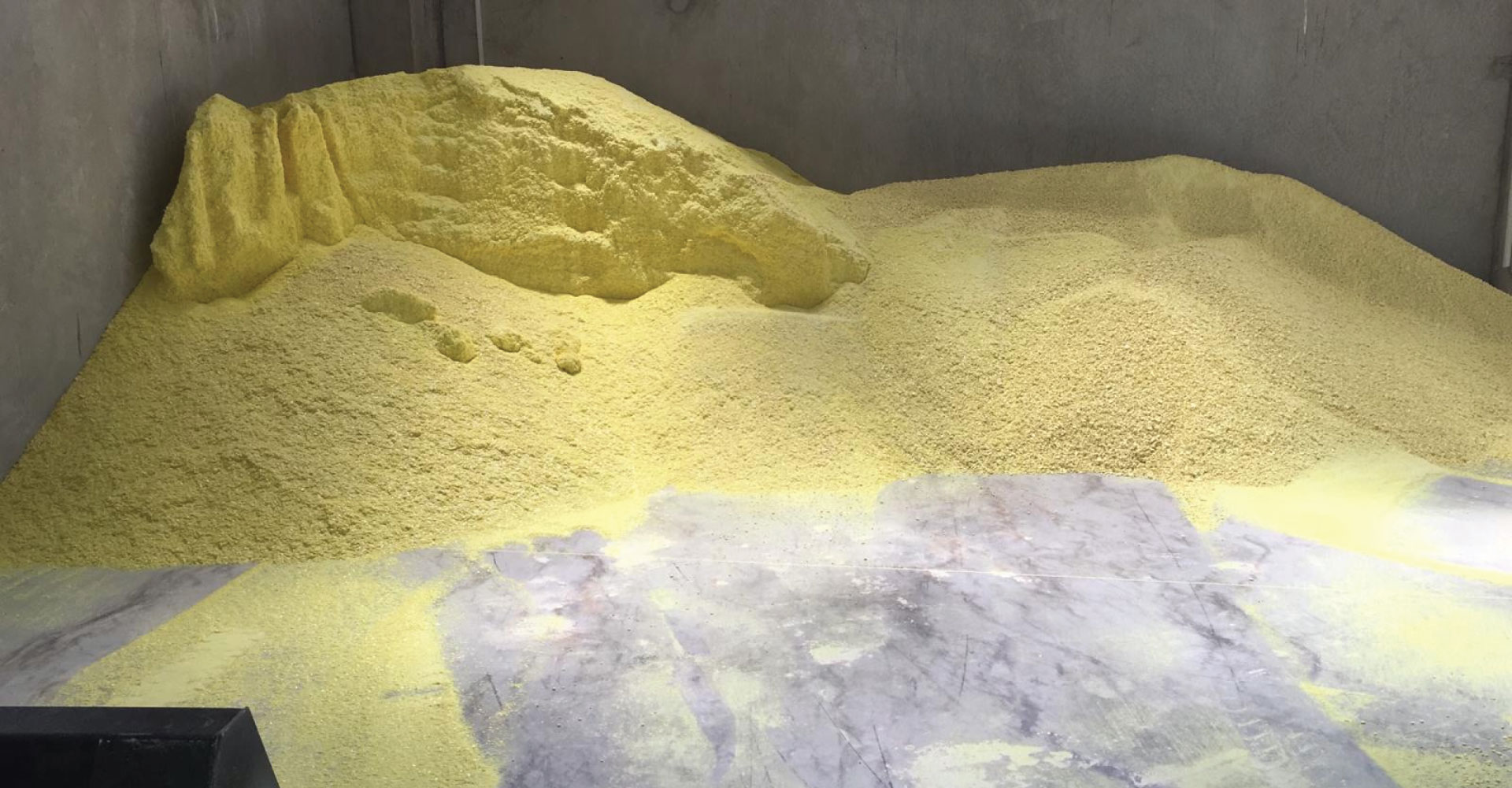
The market for Sulphur 99.9%g/Kg Dust is huge and expected to increase due to a large increase in demand caused by increase in cashew farms from 5 traditional growing regions (Mtwara, Lindi, Ruvuma, Pwani, Tanga). The production of environmentally cashew nut friendly Sulphur 99.9% Dust is expected to begin operation as early as possible. The factory process includes Grinding, Classifying of Sulphur lumps and final packaging of Dunia Sulphur 99.9% Dust.
We are establishing a Viable and Economically Profitable Modern Sulphur Powder Grinding Factory in Tanzania. The target market of our product “Dunia Sulphur 99.9% Dust” is cashew farmers, as a Plant Organic Pesticide Dust, it controls rust, leaf spot, powdery mildew (common fungi in cashew nut trees), chiggers, thrips, scale, and listed mites a variety of insects and diseases, is less toxic option to treat plants and maintain ecosystem. In absence of proper and timely Sulphur Dust application to cashew nut tree by deposits on the canopy, there will be a significant decline in crop yield.
“Dunia Sulphur 99.9% Dust” is officially registered in The United Republic of Tanzania-by-Tanzania Pesticide Research Institute in 2019. Dunia Sulphur 99.9% Dust has competitive advantages, as it is superior quality product ii its fines (less than 50 micron) and purity (99.9%) which are far above the minimum recommended WHO, FAO and Tanzania Cashew Nut Board (CBT), as we are going produce it locally we will enjoy off-season low price of Sulphur Lumps and will import as raw material enjoying import taxes reductions and complimented by overall economic of scale by bulk procure, logistic thus our ex-warehouse price will be very competitive one.
Our market strategies are to sale of product at wholesale to cashew farmers through Cooperative Union, Agriculture Marketing Cooperative Societies (AMCOS) and or direct through local suppliers with model of payment advance order and commitment, forward contract. We shall be able to capture 70%, 100% of market share for first and second year respectively for the local market, and at least 25% of market share of neighbouring countries such Mozambique, Kenya, Uganda, Zambia, Burundi and Malawi.
